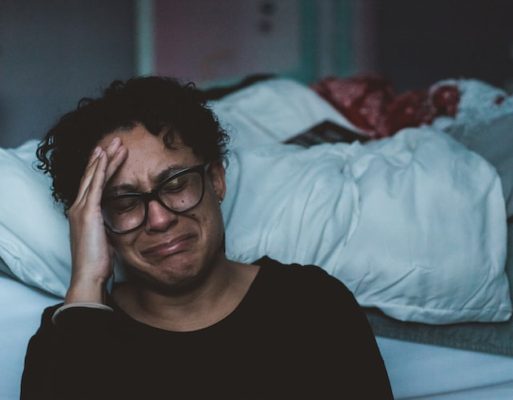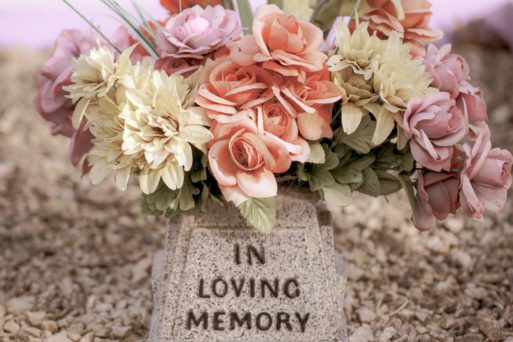
The pain of losing a loved one to gun violence is often made worse by worry over funeral expenses
Death is many things, most of them distressing. It is sad, stressful, exhausting, and, unless the person who died had been previously known to be seriously ill, often shocking.
In the 21st century in a modern nation, it is also expensive. According to a recent article in the Louisville Courier-Journal in-ground burial can cost $5,000. That is in Kentucky, one of the United States’ less-expensive areas. By contrast, in heavily populated regions of larger, more expensive states, it can be far higher. It’s not unheard-of to have to pay $10,000 just for a burial plot in a major cemetery – and then another $10,000 for the actual burial no matter how simple or how elaborate the funeral itself is. And it is exceedingly rare to be able to make payments. In the overwhelming majority of cases, the full cost must be paid upfront.
Many families do the prudent thing, especially with regard to an elderly relative, by purchasing what is essentially the real estate beforehand. Unfortunately, some receive an unpleasant surprise if they did not realize that this does not include the burial and funeral.
But doing that is impossible in the case of an unexpected death, especially of a young person, and especially when the death had been caused by violent means. Besides the horror of the situation, there is the unexpected cost of thousands of dollars. For that reason, low-income families often have to resort to online crowd-funding, or even street-side pitches such as car washes and bake sales.
And this happens distressingly often, and usually, to those already the least able to afford unexpected expenses of any type.
According to an article in U.S. News and World Report a recent study in JAMA Pediatrics found that firearms deaths are four times more likely to be suffered by people who are already marginalized by poverty or other social factors.
The study found that 62% of the more than 67,000 firearm-related deaths in people ages 5 to 24 between 2007 and 2016 occurred in counties where at least 15% of the residents were below the federal poverty level.
A Funeral Director Lends a Helping Hand
Fortunately, for some people in Kentucky, one person has stepped forward to help defray the cost for victims of homicide in and around Louisville – sadly, not a rare occurrence. As the Courier-Journal article relates, Anthony Oxendine, the owner of Spring Valley Funeral Homes, has made it a regular practice to reduce or even waive entirely the costs of burying impoverished victims of gun violence. And that is not just an occasional bit of charity. At least 100 such deaths occurred in 2021, and already 106 had taken place this year.

Anthony Oxendine waives funeral expenses for indigent families, allowing them to honor victims of gun violence.
“We are the only funeral home [in the area] that will help people in a time of need, whether they have money or not,” Oxendine, told the Courier-Journal. He often works with, and has been commended by, local leaders, including the Rev. Charles Elliott and community activist Christopher 2x, executive director of the non-profit Game Changers. According to its website, the organization promotes early childhood education and parental involvement to improve the lives of families and to reduce gun violence and promote neighborhood safety.
Why does Oxendine do it? To coin a cliché, he’s paying it forward.
“I know what it’s like to be homeless. I know what it’s like not to have food.” Early in his adult life, he found himself with virtually nothing, many of his possessions out on the street and living in his car.
Nor was that his first brush with poverty. As a country boy from the hollows of eastern Kentucky, he told the Courier-Journal, he sometimes worked to help his family at the tender age of 5 by being a door greeter during funerals, earning $5 each time and using that money to purchase food.
His boss, the owner of that funeral home and a man he still considers his mentor – Clyde Creech, owner of Creech’s Funeral Home (now Cawood Funeral Home, in Middlesboro, Kentucky), helped his own family out long ago. Oxendine said that Creech donated a vault for the interment of Oxendine’s grandfather when his widow, Oxendine’s grandmother, couldn’t afford it.
“I remember that touched her heart, and I always wanted to do that for other [needy] families,” he said.
And so he is.

 Help With Funeral Expenses for Victims of Gun Violence Comes From an Unexpected Source
Help With Funeral Expenses for Victims of Gun Violence Comes From an Unexpected Source


 “Songbird” by Fleetwood Mac
“Songbird” by Fleetwood Mac

 How to Comfort A Dying Loved One
How to Comfort A Dying Loved One














